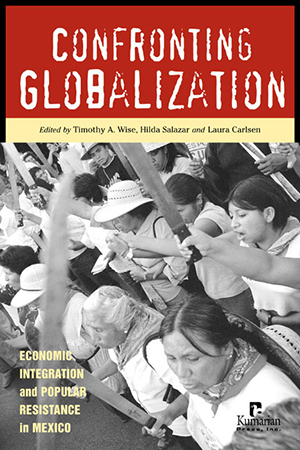Timothy A. Wise, Hilda Salazar and Laura Carlsen, editors
Is the current model for economic globalization good for the poor or the environment? Are there alternatives? Amid rising worldwide protests that corporate elites wield too much influence over global economic governance, this book on Mexico's experience under the North American Free Trade Agreement offers insights into both questions.
Timothy A. Wise is director of the research and policy program at Tufts University's Global Development and Environment Institute. Hilda Salazar teaches in the School of Arts and Sciences at Campbell University. Laura Carlsen is director of the Latin America Rights and Security Program at the Center for International Policy.
"This book is ideal for anyone interested in learning about globalization from the very people it affects." —Counterpoise
"An inspirational book, which tells an untold story of the uprising against corporate-led globalization and debunks the myth that there are no alternatives. It puts a human face to the struggle and shows that communities—everywhere, everyday—are creating viable alternatives."—Anuradha Mittal, Food First/Institute for Food and Development Policy
"Many observers have pointed to the challenges introduced by the increased integration of US and Mexican economies, but few books have documented so thoroughly the impact of these changes on Mexican civil society and the growing diversity of community-based responses. This is an important read for anyone interested in grassroots responses to globalization."—Manuel Pastor, University of California, Santa Cruz
"These closely observed experiences in Mexico will be useful to people all over the world who are determined to create societies that put human needs before corporate profits."—Howard Zinn, Boston University
"Finally a book that resists globalization but also gives alternatives. These alternatives emerge from powerful case studies of how integration managed in the interest of the Fortune 500 undermines workers, small farmers, and the environment."—John Cavanagh, Institute for Policy Studies








